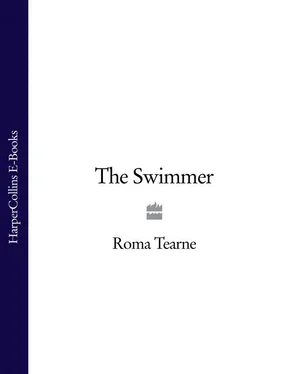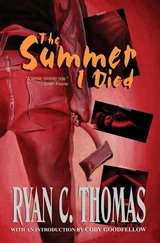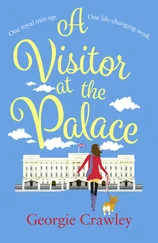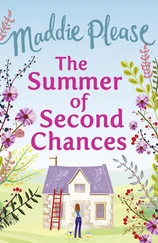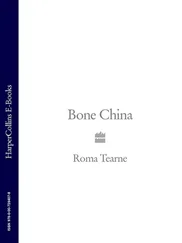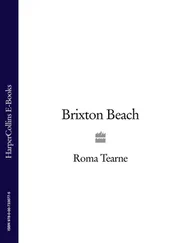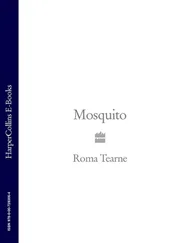
Barrie
Epigraph Epigraph SOMEONE HAD PLACED THE CALVES Ria 1 2 3 4 5 6 7 Anula 8 9 10 11 12 13 14 15 16 Lydia 17 18 19 20 Acknowledgements BEHIND THE SCENES A BANDIT OR A REBEL TRUST THE TALE THE PASSIONAL SOUL Also by Roma Tearne Copyright About the Publisher
Years
Later in the same fields
He stood at night when eels
Moved through the grass like hatched fears
Towards the water.
Seamus Heaney
A people does not carry the memory of its humiliations as an individual does.
André Chamson (1940)
SOMEONE HAD PLACED THE CALVES AT SOMEONE HAD PLACED THE CALVES Ria 1 2 3 4 5 6 7 Anula 8 9 10 11 12 13 14 15 16 Lydia 17 18 19 20 Acknowledgements BEHIND THE SCENES A BANDIT OR A REBEL TRUST THE TALE THE PASSIONAL SOUL Also by Roma Tearne Copyright About the Publisher
the entrance to Unthank Farm. The farmer, arriving at his usual early hour, discovered them. All three, pushed up against a barrel of hay, with their throats slit, in the way animals were butchered by the Halal butcher in Ipswich. It was August, hot and with the promise of a golden month ahead. Shocked, the farmer called the vet, who in turn reported the matter to the police, but the calves were already dead. A small item in the local newspaper recorded the incident which otherwise went unnoticed.
Unthank Farm spreads out towards the edge of the city of Ipswich. It is the largest farm in the area. A few days later, a rambler out walking some thirty-two miles away on Dunwich Heath, came across a dog with its throat slit. The dog was a German shepherd and it lay on the edge of the road that runs in a straight line down to Dunwich beach. It was still alive. The rambler bent and examined it. The animal had a collar but no name disc. The nearest house was some distance away, its rooftop just visible. Assuming it must belong there, he picked up the feebly struggling animal and staggered back along the road. But the house, when he reached it, looked empty. It was large, built in red brick and with an abundance of Scotch pines and thick undergrowth in the small copse behind. There were no cars in the drive, no signs of activity, no radio playing. The man hesitated. The dog was obviously cared for, its collar looked new, but the rambler was on his way to meet a group of other walkers and was already late. Placing the animal on the front doorstep, he rang the bell. There was a long pause. Then he rang the bell again, listening out for the sound of footsteps. Still nothing. Moving back, he was about to call out when he noticed one of the windows had been smashed. Clearly someone had broken in. The rambler peered through the jagged glass. He saw a room lined with bookcases and a few pieces of what looked like 1950s furniture. He saw some paintings on the walls but they were too far away and the room was too dark to make them out properly. He stepped back. The place was probably alarmed. It wouldn’t do to be caught like a thief, he thought. Just at that moment the dog made a rattling noise in its throat. Blood gushed out. It struggled, moaning softly. Then it was still. The rambler saw that it had died. Suddenly he did not want to be in this place another second. He had a mobile phone deep in his rucksack, he would call the local police about the break-in and the dog. But first he would get the hell out of here, he thought, his feet crunching hastily on the gravel driveway.
Twenty minutes later the vet from Orford arrived with the police. He was the same one who had examined the calves at Unthank Farm. The marks on the dead dog were similar to those on the calves. A slit across the throat. It was also clear that the house had been broken into. But although the rooms had been ransacked, at first glance nothing appeared to have been taken. The police began the process of lifting fingerprints and contacting the owner, William Letsby. Letsby had left his dog alone in the house for only a few hours while visiting friends in the Ipswich area. When asked his occupation he told the police he worked for the Home Office. The officer, glancing at Letsby’s ID, realised he was fairly high up in the Department of Immigration. He could also see that the man was very distressed about his dog and trying to hide this fact. Apologising, glad that nothing had been stolen, he left as soon as possible. He would be in touch, he said, in the event they caught any suspects. Meanwhile he was sorry about the dog.
Orford is a sleepy village of some beauty abutting the marshlands on one side and the estuary on the other. There are mighty tides that sweep in from the sea. Banks of sludge and silt laid down over the ages by all the marsh rivers lie unnoticed on the riverbed. The wading birds do nicely, as do the eels. Occasionally, when the tide is out and the water in the surrounding inlets appears to drop to almost nothing, you see them: eels, the length of bootlaces and the colour of green glass, twisting in the twilight.
Appearances can, however, be deceptive. People have been known to drown here. Two miles to the east, a matter of minutes by car, is Orford Ness, a one-time MoD establishment used for atomic weapons research. Now it is a benign and deserted haven for wild birds. Visitors in a small but steady stream come to visit it all year round, to walk, and observe the wildlife. This flat land with its extraordinary skies and matchstick forests is steeped in history. It is perfect country for painters, perfect crow country. But it is not a place with a high crime rate, and the vet was puzzled by the two incidents. Nothing like this had happened before. The police wondered if the animals had been the victims of a vixen. The vet knew this was not possible as the incisions looked to have been made with a knife. A local journalist filed copy about the Orford Ness animal killer but the editor did not print it for fear of causing panic amongst his readers. Besides, a circus had just moved into town and there were other, more interesting stories to print. And so the matter was dropped.
Then on the following Thursday two houses on the A1094 out of Aldeburgh were broken into and a large black retriever was found lying in a country lane. It too had been killed with a single cut to the throat. Nothing had been stolen from the houses and although a couple of windows had been broken no one had been seen entering or leaving. By now the circus was in full swing and the editor of the local paper did not run this story either.
The journalist who had filed the report was a married man, bored by the fact that nothing ever happened in Orford. The editor told him to stop complaining, forget the animal killer, and write a feature on the circus instead. But luck was on his side. While he was poking around the caravans, there was a commotion. One of the performing monkeys had been found dead. Its throat had been slit. The journalist’s eyes gleamed.
The day was marked by a warm breeze carrying the smell of ozone and fish, the sea was jewel-like and sparkling with the sun spilling over it. A small plane from RAF Mildenhall droned overhead, children played ball on the shingles. By nightfall the beach would be crowded with people returning from the circus, heading towards the fish-and-chip shop or the pub. But for now Eddie Sharp’s matinee performance was about to begin. Minus one small monkey.
No one would talk to the journalist. His eager, wolfish face made the circus folk wary. The monkey was buried quickly before the flies and the stink took hold, and the unease was quietly papered over.
In the centre of town a book launch was under way. A bestselling crime novelist was discussing his latest novel before a small audience. The journalist poked his head through the door of the bookshop. The launch had been advertised as ‘Fiction Noir’ with a picture of a corpse on a red background on the poster. The shop was packed. Solving a crime was better than Sudoku. There’s nothing here, thought the journalist, and he headed back to the office.
Читать дальше
